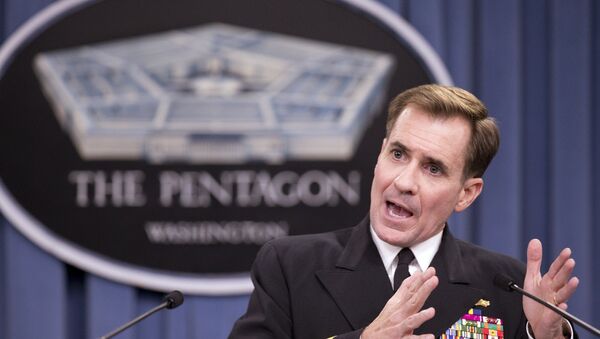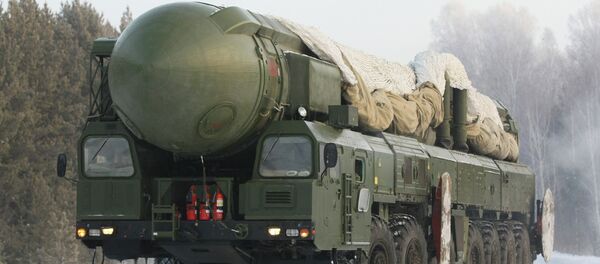US Deputy Secretary of Defense Robert Work stated on Wednesday that Washington and NATO are observing rapid improvements in Russia’s and China's military technologies with increased concern, particularly as US technological advantages over potential adversaries decrease.
''Work's statement reflects the fact that the US spent significantly more on defense than our European allies throughout the Cold War, and that trend has increased in the 25 years since the end of the Cold War,'' Christopher Harmer, a senior naval analyst at the Institute for the Study of War, told Sputnik.
''If NATO allies want to remain relevant in terms of their ability to design and procure modern weapons systems, they need to spend more money on it,'' he added.
The analyst noted that the deputy secretary could have referred to the F-35 fighter jet acquisition program in his statement.
''This will be the most expensive weapon procurement in history, and the US is hopeful that NATO allies will buy this aircraft from the US manufacturer,'' Harmer said.
“However, given the free rider problem with alliances, it is unlikely that the allies will spend much more on defense,” he stressed.
US Deputy Secretary of Defense Work stated on Wednesday that areas of concern for the United States include the advances made by Russia and China in modernizing nuclear weapons, anti-ship and anti-aircraft missiles, long-range strike missiles, as well as counterspace, cyber, electronic warfare, and special operations capabilities.
According to the media reports, the White House will seek a defense spending increase when it submits its 2016 budget request to Congress next week. Reportedly, the Pentagon’s proposal will be $534 billion, exceeding budget caps by $35 billion.
Eland claimed, referring to the reports about upcoming budget proposal, that the Pentagon always exaggerates external threats around budget time.
“There is no military in the world that is even close to being in the same league as that of the US military. Thus, all external threats the United States are limited,” the expert said.
The US Department of Defense cannot confirm these reports on the upcoming budget proposal, the department’s spokesperson told Sputnik on Thursday.






